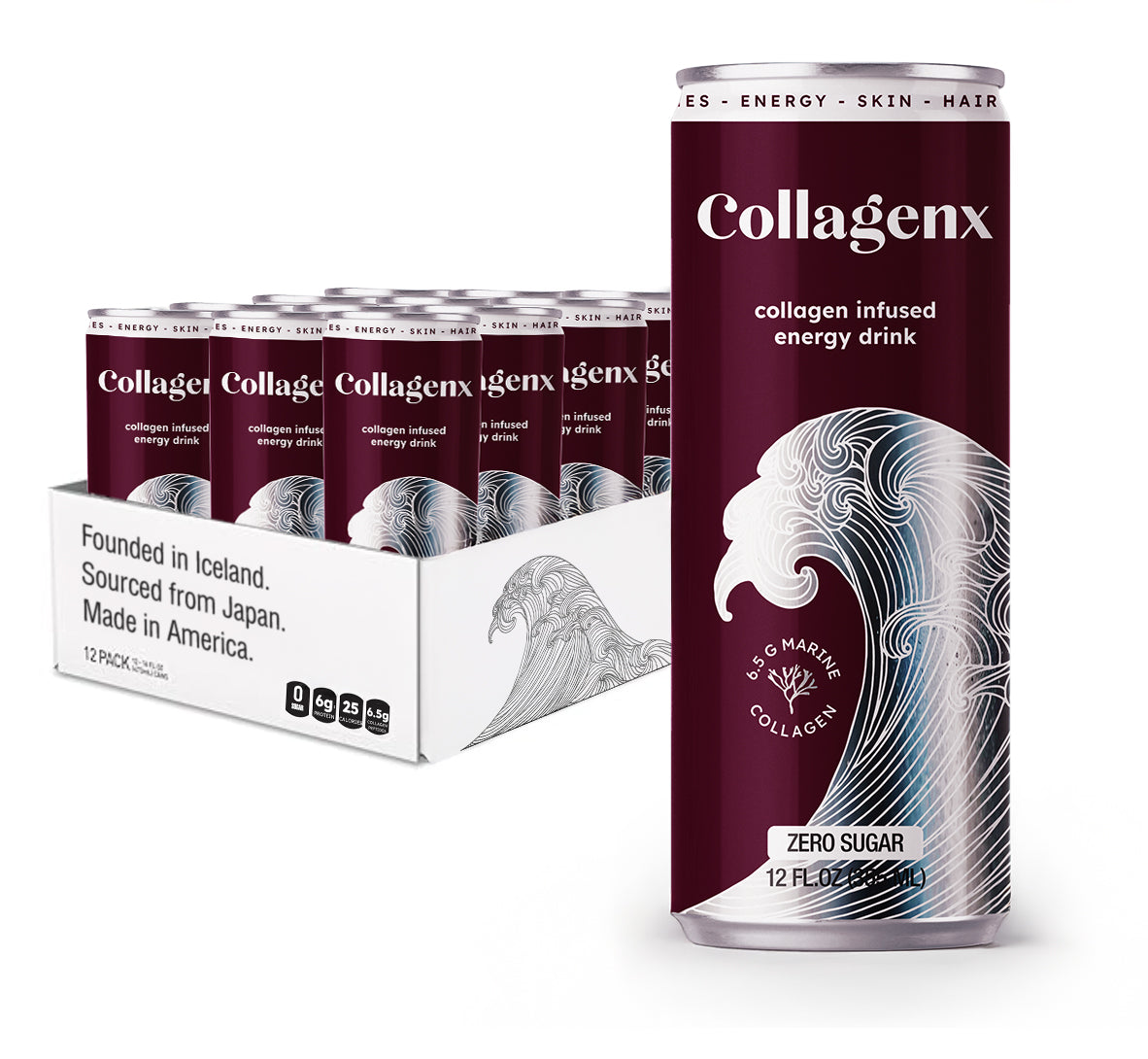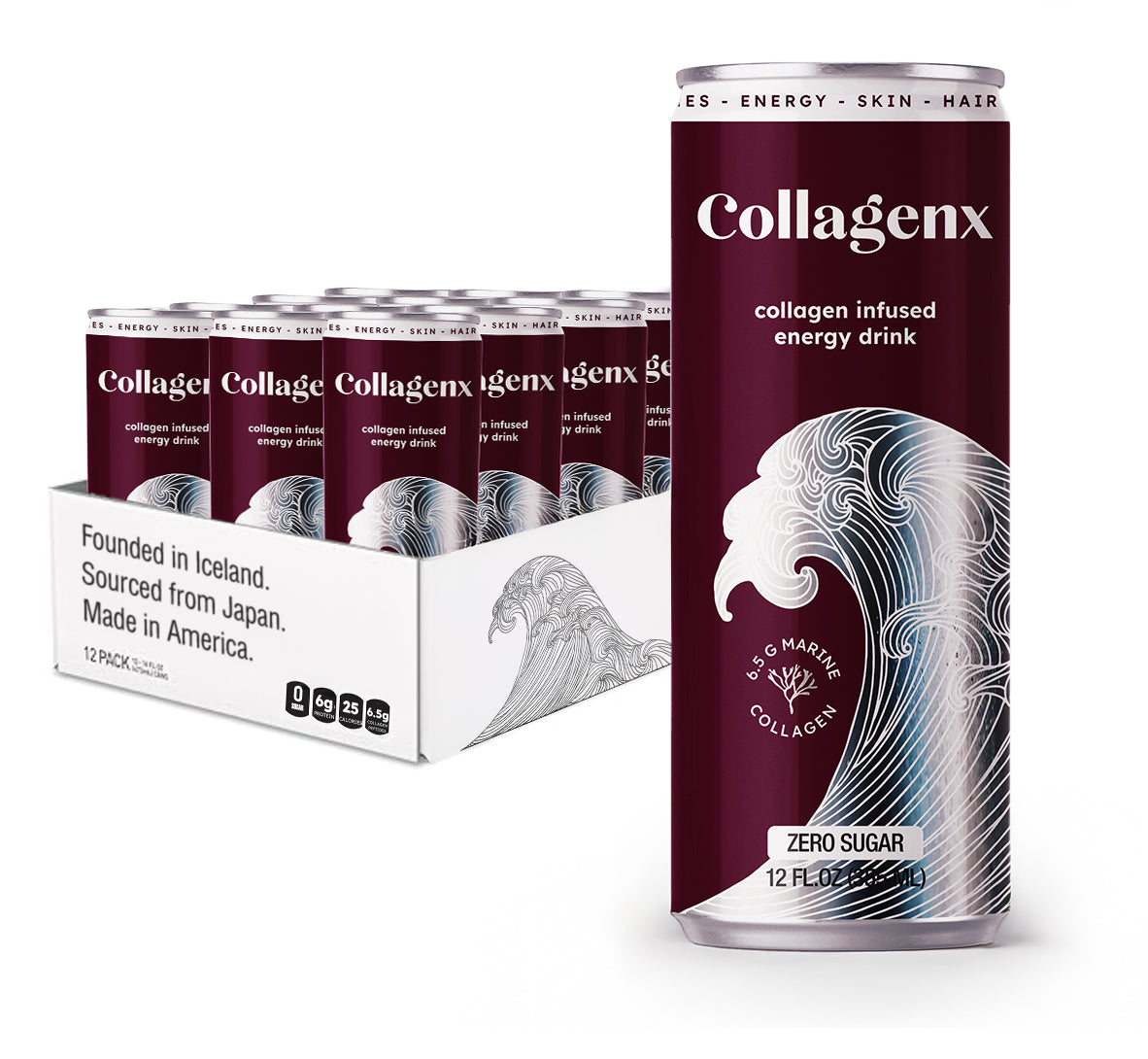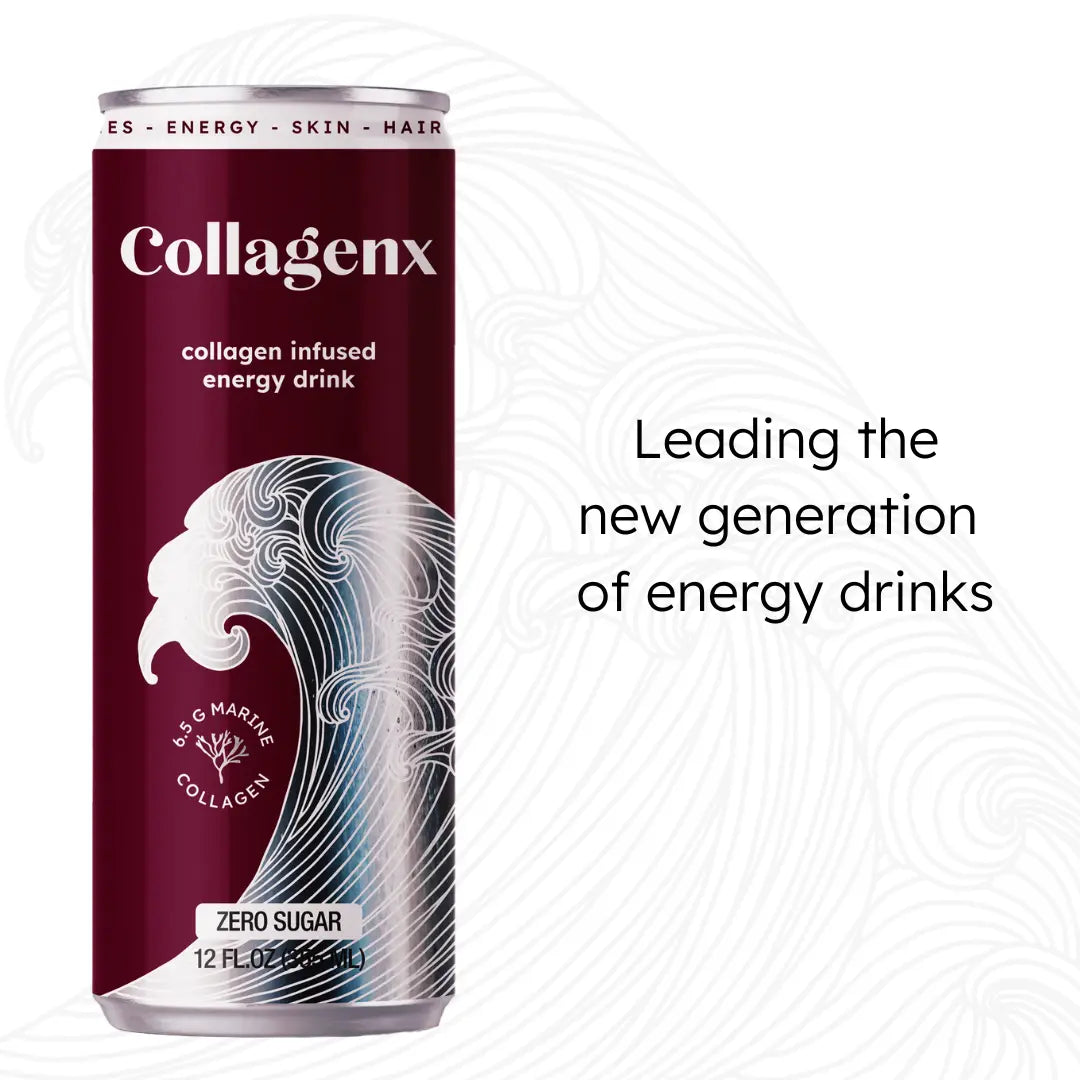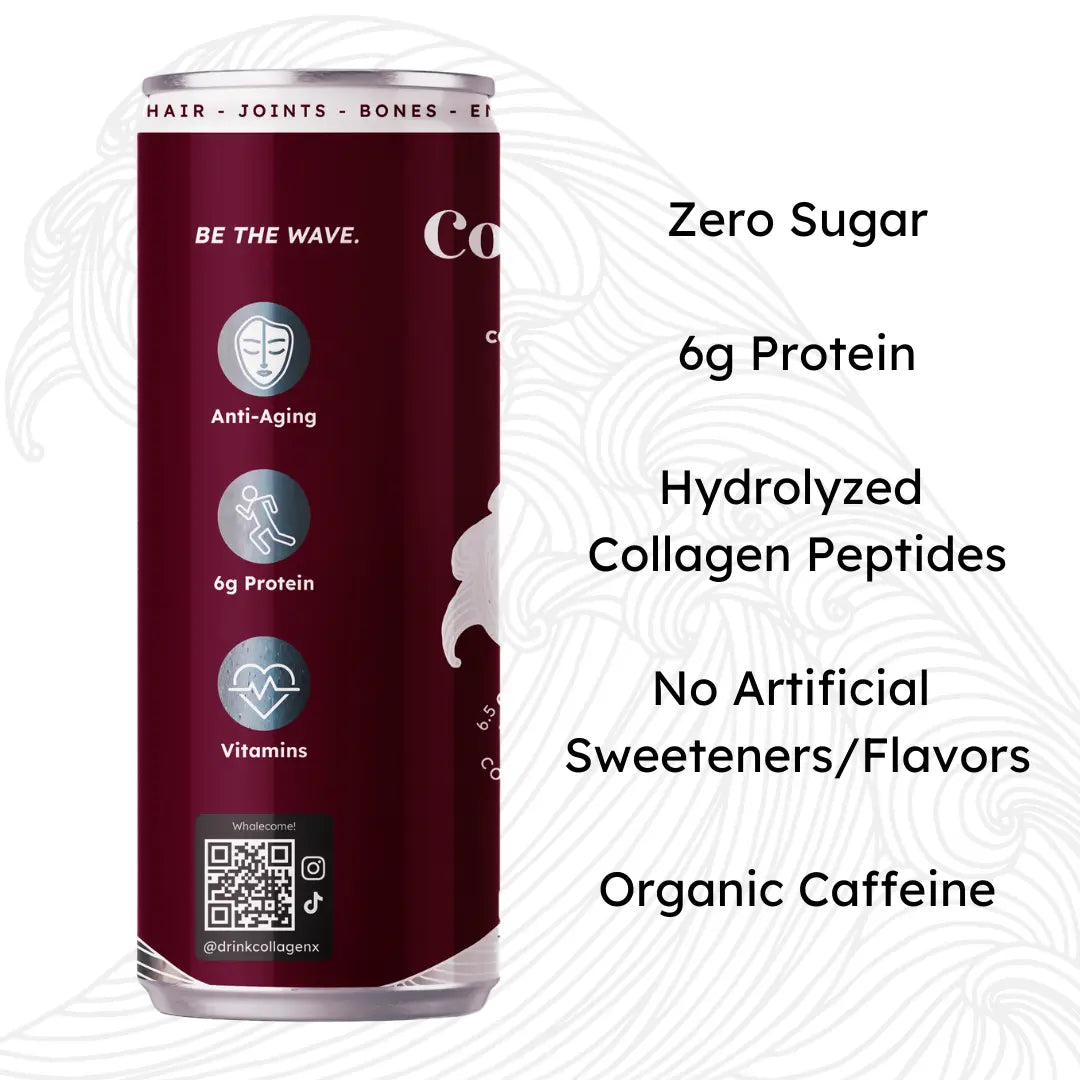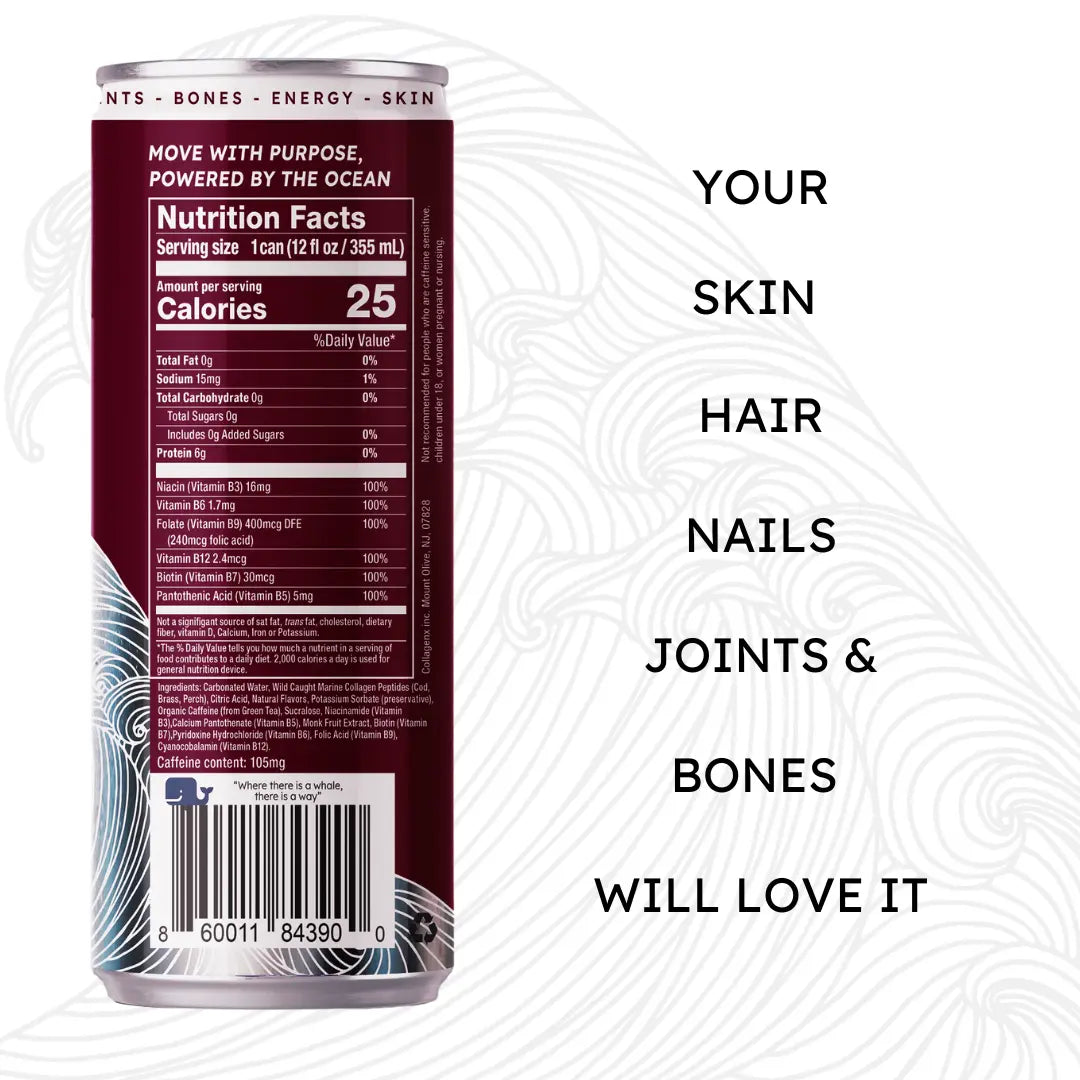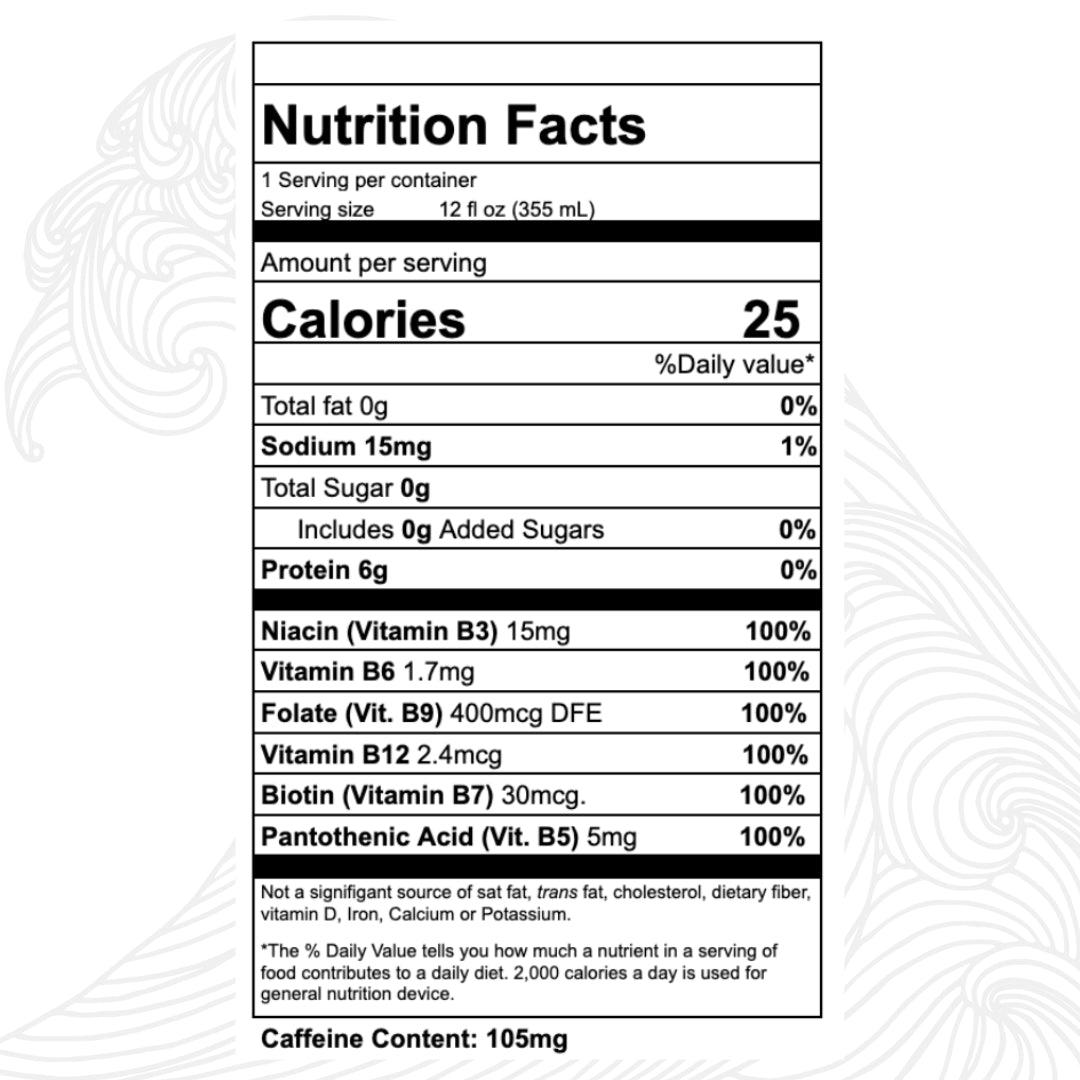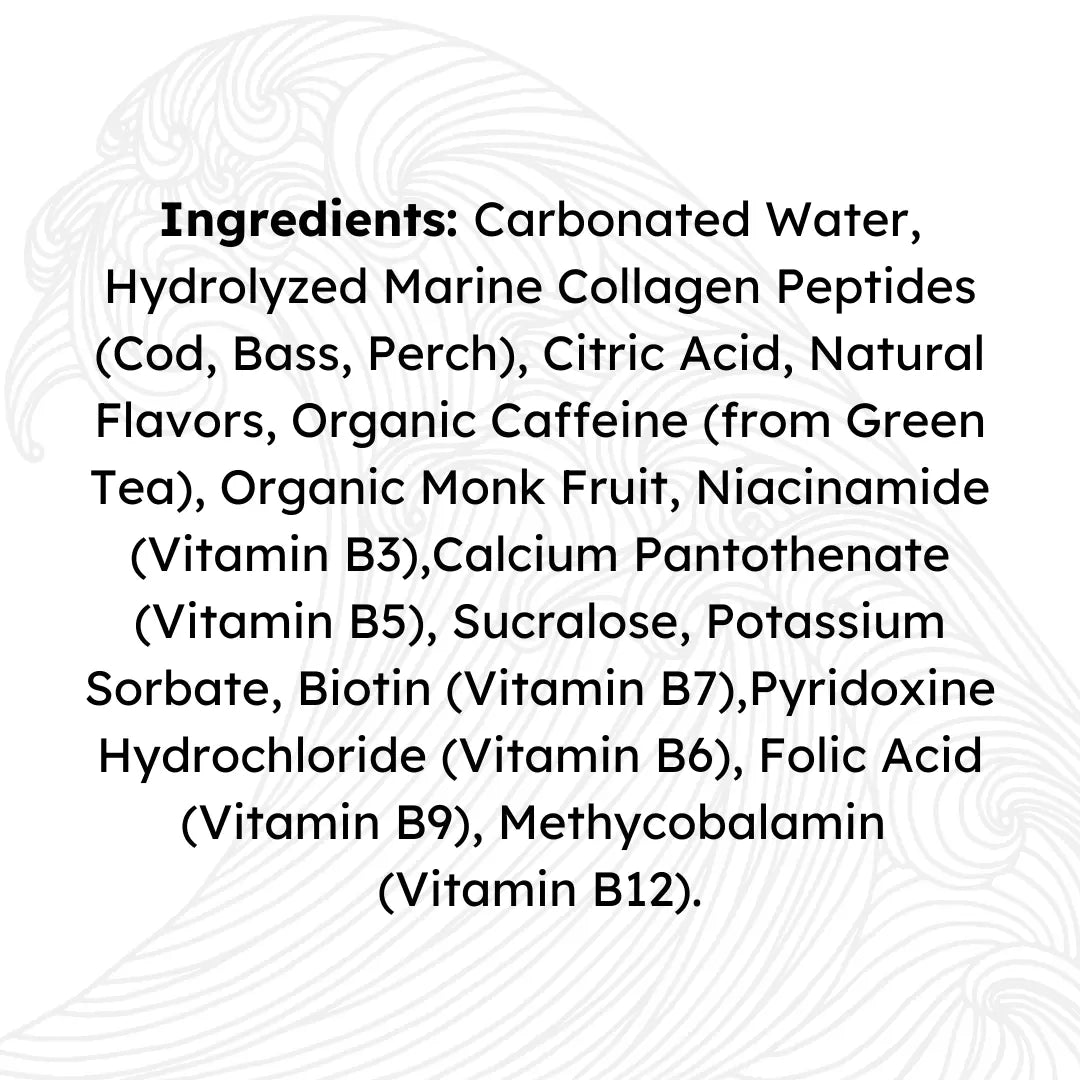
Why You Should Care About Collagen, from a Whole Body Perspective
By Collagenx Research Team │ 3 min read
Collagen is the glue that holds your body together, making it essential for your overall health and well-being. From keeping your skin smooth and youthful to ensuring your bones and joints stay strong and flexible, collagen is crucial to maintaining a healthy body as you age.
By taking steps to boost your collagen levels—whether through food, supplements, or skincare—you can help preserve your youthfulness , reduce joint pain , and support bone strength well into the future.
💡 Did you know
Did you know that there are over 28 kinds of collagen protein in the human body? Collagen is, in fact, our most abundant protein and makes up around 40% of protein in our body, contributing to every part of our body from head to toe.
Why You Should Care About Collagen: A Whole Body Perspective
Collagen is a hot topic in the wellness world, and it’s for good reason. This versatile protein plays a vital role in keeping our bodies functioning and looking their best. From youthful skin to strong joints, collagen is the glue—quite literally—that holds our body together. But there’s more to collagen than just smooth skin. Understanding its benefits, the different types of collagen, and how it works from a whole-body perspective can help you make the most of collagen supplements for better health, inside and out.
In this comprehensive guide, we’ll cover everything you need to know about collagen, including its role in the body, the various types (with a focus on types 1, 2, and 3), the difference between these types, and the pros and cons of taking collagen supplements. Whether you’re interested in improving your skin’s appearance, boosting joint health, or supporting your overall well-being, collagen could be the key to achieving those goals.
What is Collagen?
Collagen is the most abundant protein in the human body, accounting for about 30% of the body’s total protein content . It is a structural protein that provides the framework for various tissues, including skin, bones, tendons, muscles, ligaments, and even the gut lining. Think of collagen as the glue or scaffolding that holds your body together. Without it, your skin would sag, your joints would weaken, and your muscles wouldn’t be able to function properly.
Collagen is made up of amino acids , with glycine , proline , and hydroxyproline being the three main ones. These amino acids form long chains that create collagen fibers, giving your tissues the strength and flexibility they need to perform their functions.
However, as we age, the body’s natural collagen production begins to decline, starting in our mid-20s. By the time you reach your 30s and 40s, you may start to notice signs of collagen loss, such as wrinkles, joint discomfort, and reduced muscle mass. Environmental factors like sun exposure , smoking , alcohol consumption , and stress can also accelerate collagen loss.
A Whole Body Perspective of Collagen

Why You Should Care About Collagen: A Whole Body Perspective. Collagen is not just a beauty supplement. When you take collagen, you’re supporting various parts of your body, including your skin, joints, bones, muscles, nails, hair, and gut health. Let’s take a closer look at how collagen affects each part of the body:
Skin : Collagen is a major component of the skin, especially the dermis , which is the layer responsible for skin elasticity and hydration. As collagen levels decrease, the skin loses its firmness and becomes more prone to wrinkles and sagging. Supplementing with collagen can help restore skin elasticity , increase hydration , and reduce the appearance of fine lines .
Joints and Cartilage : Collagen makes up a large part of your joints and cartilage . It acts as a cushion between your bones, allowing smooth and pain-free movement. Collagen supplementation is known to support joint health by reducing pain and discomfort, particularly in active individuals or those with joint issues like arthritis .
Bones : Collagen forms the framework of your bones , helping to maintain bone density and strength. As collagen production declines with age, bones can become more fragile, increasing the risk of fractures. Studies suggest that collagen supplements can boost bone mineral density and support overall bone health , especially in postmenopausal women.
Muscles : While collagen doesn’t build muscle mass directly, it supports muscle recovery after exercise by promoting the repair of muscle tissues . Collagen makes up about 11% of the protein content in muscles and helps maintain muscle function as we age.
Nails and Hair : Collagen is an essential building block for healthy nails and hair . It provides strength to the nail bed and promotes hair follicle health, which can lead to stronger nails and healthier hair growth .
Gut Health : Collagen plays a role in maintaining the integrity of the gut lining , which is essential for proper digestion and nutrient absorption. Collagen peptides, particularly glycine and proline, help repair and strengthen the intestinal lining , making them beneficial for those with gut-related issues like leaky gut or digestive discomfort .
Types of Collagen: What You Need to Know About Types 1, 2, and 3

There are at least 28 types of collagen found in the human body, but types 1, 2, and 3 are the most common and most important for overall health. Each type serves a different purpose, so understanding how they work can help you choose the right collagen supplement for your needs.
Type 1 Collagen
Type 1 collagen is the most abundant type of collagen in the body, making up about 90% of the total collagen. It’s found in the skin , bones , tendons , ligaments , and organs , providing structural support. When most people talk about collagen for anti-aging or beauty benefits, they are referring to Type 1 collagen, as it’s the primary type involved in maintaining skin elasticity and bone strength .
Key Benefits : Improves skin elasticity, promotes stronger bones, strengthens tendons and ligaments.
Sources : Bovine collagen, marine collagen.
Type 2 Collagen
Type 2 collagen is found predominantly in cartilage , where it helps cushion the joints and allows for smooth movement. This type of collagen is essential for joint health, especially for those with joint pain or conditions like osteoarthritis .
Key Benefits : Supports joint health, reduces pain and discomfort in the joints.
Sources : Chicken collagen, sometimes found in multi-collagen supplements.
Type 3 Collagen
Type 3 collagen is usually found alongside Type 1 collagen and is present in skin , blood vessels , and internal organs . It provides structure to organs like the liver , lungs , and intestines and plays a role in maintaining vascular health . Type 3 is also important for skin elasticity and is often considered the “backup” to Type 1 collagen.
Key Benefits : Supports vascular and organ health, enhances skin elasticity.
Sources : Bovine collagen, often in combination with Type 1 collagen.
Differences Between Collagen Types 1, 2, and 3
While all types of collagen serve the function of providing structural support, the differences lie in where they are found and what they support . Here’s a breakdown of the key differences between Types 1, 2, and 3:
Type 1 is primarily focused on skin, bone, and connective tissues . It’s the best type of collagen if your main goals are skin health, anti-aging, or bone density.
Type 2 is the collagen of choice for joint health , as it helps to maintain and repair cartilage, which cushions the joints.
Type 3 works alongside Type 1 to enhance skin elasticity , but its primary role is in supporting blood vessels and organ structure, making it crucial for internal health.
Knowing the specific benefits of each type of collagen can help you tailor your supplement intake based on your health needs.
Collagen Supplements: Pros and Cons

With collagen’s increasing popularity, you might wonder whether collagen supplements are really worth the hype. Here are some pros and cons to consider before adding collagen to your daily routine.
Pros of Taking Collagen
Improved Skin Health : Numerous studies have shown that collagen supplements can improve skin elasticity , reduce wrinkles , and increase hydration . This makes collagen particularly appealing to those looking to maintain youthful skin.
Joint Support : Collagen, particularly Type 2 collagen, is excellent for improving joint health, reducing pain, and promoting mobility —especially beneficial for athletes and individuals with joint issues.
Bone Strength: Collagen is an essential part of the bone matrix , and studies suggest that collagen supplementation can help increase bone density and reduce the risk of fractures, especially in postmenopausal women.
Muscle Recovery : While collagen doesn’t directly build muscle, it aids in muscle recovery after exercise, helping repair tissue and reduce soreness.
Hair and Nail Health : Collagen peptides contain amino acids that support hair and nail growth , making them less brittle and more resilient.
Gut Health: Collagen supports a healthy gut lining, improving digestion and reducing inflammation in the digestive tract.
Cons of Taking Collagen
Not a Complete Protein : Collagen contains many essential amino acids but is not a complete protein . If you rely on collagen for protein intake, you’ll need to supplement with other sources of protein to ensure you’re getting all the essential amino acids.
Effectiveness Varies : While many people experience positive results from collagen supplements, the effectiveness can vary depending on factors like the quality of the collagen source and individual health conditions.
Cost : High-quality collagen supplements, especially marine or hydrolyzed forms, can be relatively expensive, and the results may take time to become visible.
Taste and Texture : Some collagen supplements have a slightly chalky taste or texture, although many brands offer flavorless options or flavored products to mix into food and beverages.
Source Allergies: Since collagen is derived from animal sources, individuals with allergies to beef , chicken , or fish should be cautious and choose a collagen source that doesn’t trigger their allergies.
How Much Collagen Should You Take?

The recommended dosage of collagen varies depending on the product and your health goals. Most collagen supplements suggest a dosage of 10-15 grams per day, which can be easily added to a smoothie, coffee, or meal. For joint health, studies often recommend taking around 5-10 grams of Type 2 collagen daily.
Conclusion: Is Collagen Worth Adding to Your Wellness Routine?
From a whole-body perspective, collagen is more than just a beauty booster. It plays an essential role in maintaining your skin’s youthfulness , joints’ flexibility , bones’ strength , and gut health.
While collagen supplements may not work overnight, consistent use can lead to improvements in various areas of health, making it a worthwhile addition to your wellness routine.
Whether you’re looking to reduce wrinkles, improve joint health, or support muscle recovery, collagen offers a versatile solution. With types 1, 2, and 3 working together to provide holistic benefits, collagen supplements could be the key to a stronger, healthier you—inside and out. Why You Should Care About Collagen: A Whole Body Perspective
Sources:
MayoClinic: https://newsnetwork.mayoclinic.org/discussion/mayo-clinic-q-and-a-collagen-and-biotin-supplements/
Healthline: https://www.healthline.com/nutrition/collagen
Harvard Health: https://www.health.harvard.edu/blog/considering-collagen-drinks-and-supplements-202304122911
Why You Should Care About Collagen: A Whole Body Perspective. Why You Should Care About Collagen: A Whole Body Perspective. Why You Should Care About Collagen: A Whole Body Perspective. Why You Should Care About Collagen: A Whole Body Perspective. Why You Should Care About Collagen: A Whole Body Perspective. Why You Should Care About Collagen: A Whole Body Perspective. Why You Should Care About Collagen: A Whole Body Perspective. Why You Should Care About Collagen: A Whole Body Perspective. Why You Should Care About Collagen: A Whole Body Perspective. Why You Should Care About Collagen: A Whole Body Perspective . Why You Should Care About Collagen: A Whole Body Perspective. Why You Should Care About Collagen: A Whole Body Perspective. Why You Should Care About Collagen: A Whole Body Perspective. Why You Should Care About Collagen: A Whole Body Perspective. Why You Should Care About Collagen: A Whole Body Perspective. Why You Should Care About Collagen: A Whole Body Perspective. Why You Should Care About Collagen: A Whole Body Perspective. Why You Should Care About Collagen: A Whole Body Perspective .Why You Should Care About Collagen: A Whole Body Perspective. Why You Should Care About Collagen: A Whole Body Perspective. Why You Should Care About Collagen: A Whole Body Perspective. Why You Should Care About Collagen: A Whole Body Perspective. Why You Should Care About Collagen: A Whole Body Perspective .Why You Should Care About Collagen: A Whole Body Perspective Why You Should Care About Collagen: A Whole Body Perspective. Why You Should Care About Collagen: A Whole Body Perspective. Why You Should Care About Collagen: A Whole Body Perspective. Why You Should Care About Collagen: A Whole Body Perspective. Why You Should Care About Collagen: A Whole Body Perspective. Why You Should Care About Collagen: A Whole Body Perspective. Why You Should Care About Collagen: A Whole Body Perspective. Why You Should Care About Collagen: A Whole Body Perspective. Why You Should Care About Collagen: A Whole Body Perspective

